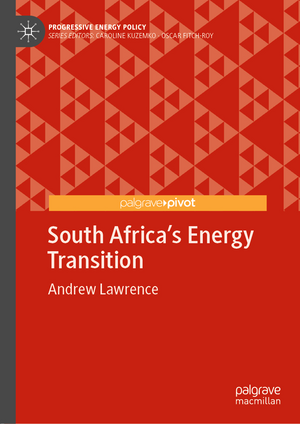South Africa’s Energy Transition: Progressive Energy Policy
Autor Andrew Lawrenceen Limba Engleză Hardback – 16 sep 2019
Preț: 386.39 lei
Nou
Puncte Express: 580
Preț estimativ în valută:
73.94€ • 80.56$ • 62.30£
73.94€ • 80.56$ • 62.30£
Carte tipărită la comandă
Livrare economică 23 aprilie-07 mai
Preluare comenzi: 021 569.72.76
Specificații
ISBN-13: 9783030189020
ISBN-10: 3030189023
Pagini: 136
Ilustrații: IX, 177 p. 2 illus., 1 illus. in color.
Dimensiuni: 148 x 210 mm
Greutate: 0.38 kg
Ediția:1st ed. 2020
Editura: Springer International Publishing
Colecția Palgrave Pivot
Seria Progressive Energy Policy
Locul publicării:Cham, Switzerland
ISBN-10: 3030189023
Pagini: 136
Ilustrații: IX, 177 p. 2 illus., 1 illus. in color.
Dimensiuni: 148 x 210 mm
Greutate: 0.38 kg
Ediția:1st ed. 2020
Editura: Springer International Publishing
Colecția Palgrave Pivot
Seria Progressive Energy Policy
Locul publicării:Cham, Switzerland
Cuprins
Chapter 1. Introduction.- Chapter 2. Competing paradigms for understanding energy transitions.- Chapter 3. Eskom and the Dual Character of the South African State.- Chapter 4. Non-RE alternative energies: nuclear, geothermal, fracking and offshore gas.- Chapter 5. REIPPPP: Renewables’ Rise, or REIPPPP RIP?.- Chapter 6. Conclusion: Just an Energy Transition – or a Just Transition?.- References.
Recenzii
)
Notă biografică
Andrew Lawrence is a research fellow at Wits School of Governance, South Africa and Visiting Professor at Vienna School of International Studies, Austria. He has written extensively on South Africa and the comparative and global political economy of energy. Publications include Employer and Worker Collective Action: A Comparative Study of Germany, South Africa, and the United States (2014).
Caracteristici
Provides a succinct overview of the evolution of policies addressing both energy and climate justice in South Africa Draws on a range of analytical perspectives, including socio-technical studies, just transitions, and critical political economy Explains why South Africa’s energy transition from a coal-dependent, centralised power generation and distribution system has been so slow Reveals the types of socio-political inequalities that persist across regimes and energy paradigms



